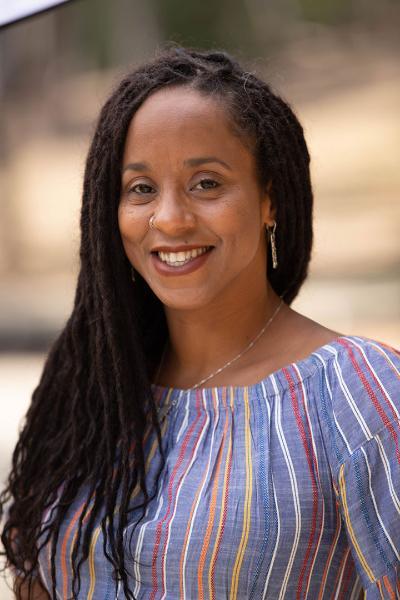
Collette Alleyne is the Chief Education Officer at Inner-City Arts, a nonprofit arts organization, where she leads the strategic development and implementation of innovative arts education programs, along with fiscal oversight. In her role, she works with executive leadership and program staff, ensuring that the program aligns with the mission and vision of the organization. In addition, she oversees program documentation, evaluation, and impact assessment and provides day-to-day direction. She cultivates partnerships with community organizations and schools to enhance program reach and impact and collaborates on comprehensive recruitment and enrollment plans. Furthermore, she supports a team of dedicated educators and administrative staff, providing mentorship and ongoing development opportunities.
Collette was referred to LMU’s Ed.D. Program by a respected colleague and was intrigued by its focus on social justice at a time when the world was in complete disarray. She had dreamed of impacting the world, specifically in the arts and education, to create learning environments that resemble a holistic education, not the status quo. She was interested in investigating the depth of environmental influence on student choice and cognitive development and understanding how family history informs student decision-making. She believed that LMU’s program would allow her to explore that interest while gaining additional skills to move in that direction.
Her dissertation, “Promoting Equitable and Holistic Education: The Role of Arts Education and Whole Child Policy in Unleashing Potential and Advancing Progress,” chaired by Jongyeon (Joy) Ee, Ph.D., centered on understanding school leaders' awareness and interpretation of the existing whole-child inclusive arts education policies, the intersection of those policies and school site goals, and evaluating how the school structure and educators' beliefs supported the school leaders' interpretation of the policies to promote implementation. In addition, the study aimed to identify barriers to the effective implementation of policy and to support or codify strategies for the sustainability of whole-child art inclusive education, emphasizing the implications of social justice.
For Collette, participating in the program has clarified systemic educational issues and helped her to reconcile the idea of supporting incremental change with the ultimate goal of systemic change. Her time with professors has inspired her to continue the work, no matter the burden of resistance. Her cohort members have informed the value of diverse perspectives in supporting impact. Additionally, her children have observed her process, and may now have a clearer picture of what is possible in life, while she has learned the value of her family and that nothing means more to her than they do. Leaders are one of many!